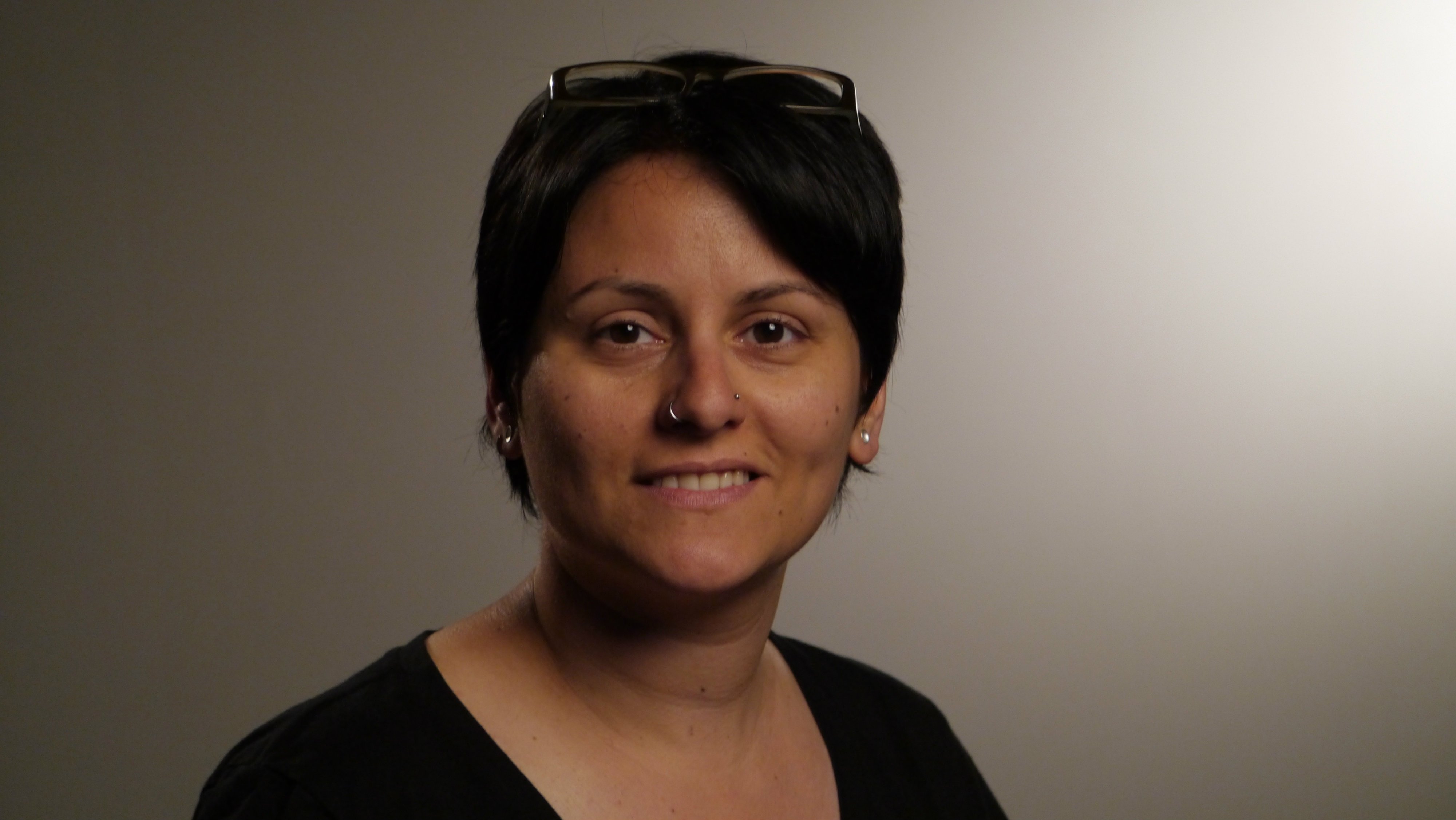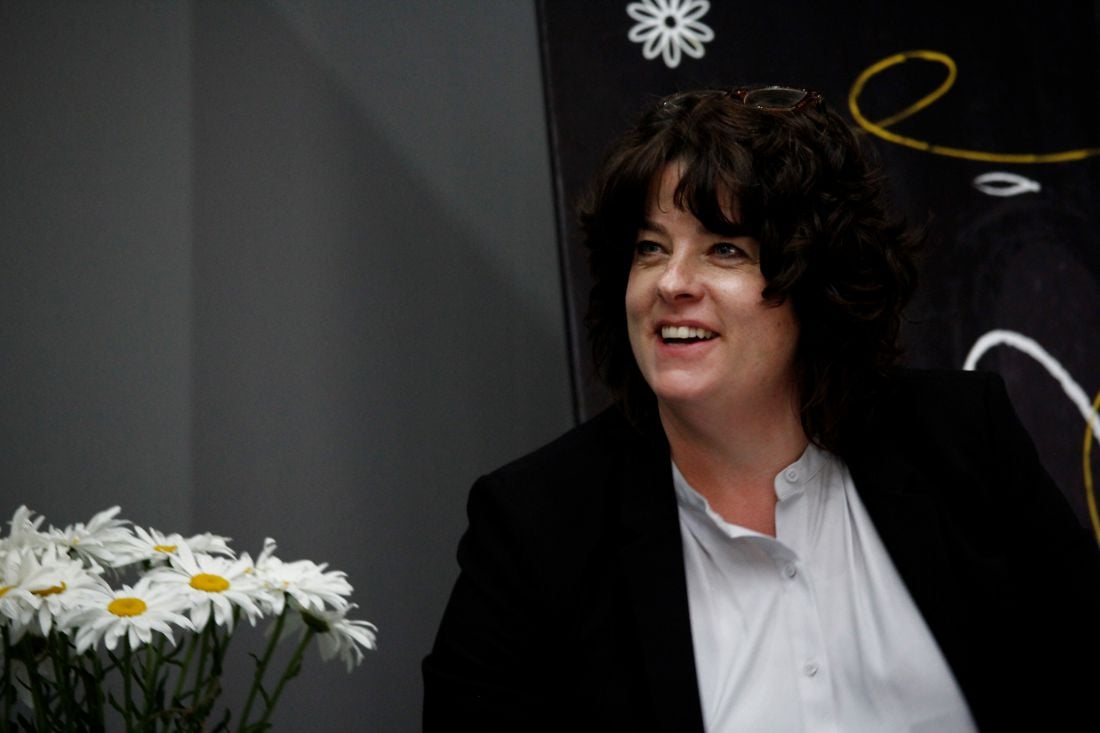Barbara McCormack is the vice president of NewseumED, the education arm of Newseum, an interactive museum in Washington, D.C., that aims to “increase public understanding of the importance of a free press and the First Amendment” to the US Constitution. NewseumED provides free learning tools and resources on media literacy tools to supplement the school curriculum. Barbara sees NewseumED’s role as one that supports teachers and believes museums are uniquely positioned to provide such media literacy and education.
“Folks have lost trust in media, in some NGOs, and in our press, but museums, overall, are trusted because we’re not political and we do research, before putting out our training programs. So this is why the Newseum is making this huge effort to help train the general public,” she said during her talk at the Tvapatum Media Conference last month.
While in Yerevan, Barbara met with Media.am briefly to discuss why media literacy training is important — especially these days in a fake news world — and the role museums play in engaging the public.
What do you see as museums’ role in media literacy?
We see our role as supporting teachers so they have standards of learning. They have topics they have to teach in the classroom, so we create free resources to help them meet those standards and reach children, and we do it around media literacy, history, and the First Amendment. So it’s just supporting teachers with free resources.
The role of a lot of museums is to support the education community. Teachers have limited funding, access to resources, and limited time to create their own resources, so it’s our job to meet teachers where they’re at, where they’re teaching. To understand what they’re charged with teaching and then help give them the tools to do that in the classroom.
What are some of the tools and resources you provide?
We could offer a class, for example: we do it on site, online, or we go out into the community. We create lesson plans. We have primary sources. Teachers, especially those teaching media literacy, need access to primary sources, but because of copyright laws they can’t always get their hands on those, so we work through donors to get the rights to use these for teachers for free and then I put them on my website. So that’s our role. To give them lesson plans, classes, primary resources, videos — we create videos, we use our artefacts, put it all online and make it free or teach them onsite at the museum.
Teachers [in the US] have been teaching forms of media literacy for 30 years. Some librarians do it, some teachers build it into their curriculum. What’s changed though is the digital literacy, the medium, the platforms. Information literacy, finding reliable information is not new, and library services have always been focused on that. News literacy is not new, but there’s more emphasis on it now because of the technology used to deliver and deceive news.
What happens when governments and companies (like Facebook and Twitter) intervene and try to fight fake news — what might be the negative consequences? Where do you see the legal and ethical conflict between freedom of speech and fake news?
The First Amendment protects good information and bad information. And that’s where there are lines. First Amendment protects hate speech. That’s a line a lot of folks have trouble understanding. I’m a First Amendment purist, and so I would like to protect those rights. Because I have those rights doesn’t mean I’m going out and spewing hateful things. But we protect those in order to protect good speech that people might want to silence because it’s speech they don’t agree with. And I think that comes from an informed citizenry.
Whenever someone decides for you what’s good and what’s bad, we have a problem. Someone else is making that decision. So I would love to see consumers be able to make their own decisions. Not all consumers are as thoughtful as others, we know this, but maybe through more training, more workshops, more discussions, people will start thinking and be more open to other ideas. And not just their points of view. I hope so. But if we don’t train the consumer, who makes the decision? Who’s the right person to make the decision? I think it’s a fine line, and I don’t think our governments should make those decisions. I think they should help regulate tech companies to be more transparent. So through regulation I’d like to see transparency requirements so consumers can figure out what they’re looking at, how information is coming to them, but not “you can say this and you can’t say that.” That’s what I’d like to not see. But I’d like consumers to be smart too, and be responsible with this right.
What, in your opinion, is the best model of engaging the public?
I don’t think there’s one way. I think you need a toolbox of approaches because different people are going to appeal to different techniques. Games, real-life case studies — we like to take a real-life controversial case study and then discuss it. And peel back the layers and have a respectful conversation and model how that can be done. And show how important it is to get to real facts, and stay away from emotion and have your discussions. So you need all sorts of tools. And you need to meet people where they are. So if they’re on their device and that’s where you can send information, then we need to meet them on their device. Or in the classroom. Or in a library program. Or in a museum discussion. We need to do it in multiple places and through multiple deliveries. For example, we know video is king; everybody loves the video. So wherever you find people.
You do need to talk some process, especially with younger children as you’re laying the foundation for critical thinking, but then you do need, as Paul [Mihailidis, associate professor of Civic Media & Journalism at Emerson College and Tvapatum’s keynote speaker] points out, the why. Why is it important? And then maybe we can create the empathy, the understanding. Just like travel. Why do we travel around the world? It’s to understand, see, and experience firsthand other people. It’s the why. It’s important.
At the Newseum, our focus is protecting the values of the First Amendment (which protects freedom of press, religion, assembly, petition, and speech). Without solid media literacy training all of those basic values and freedoms are threatened. This is the why behind media literacy training. We can’t have these crucial conversations that impact our world, these important social issues, if we don’t have the same set of facts that we’re working from. So this is why.
Interview by Adrineh Der-Boghossian







